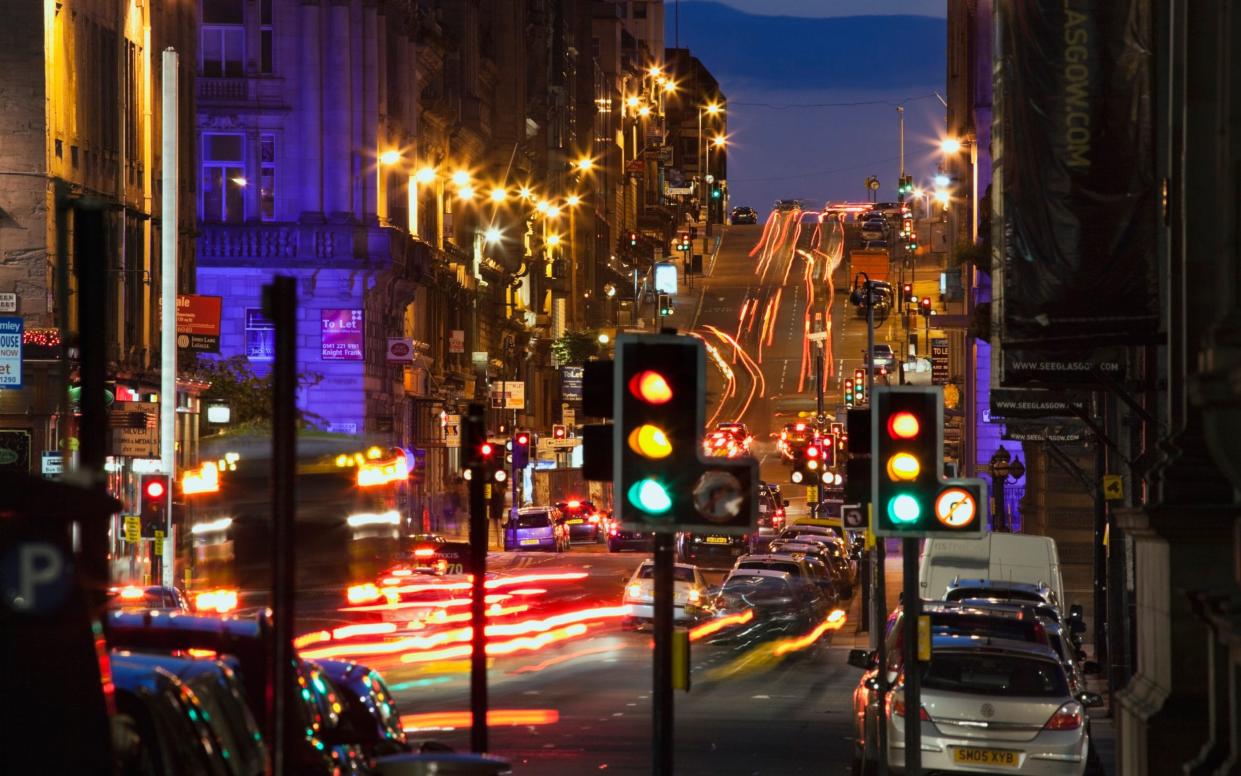Glasgow to impose 20mph speed limits

Thousands of Glasgow streets are to have their speed limit cut to just 20mph in a bid to encourage motorists to abandon the use of cars.
Glasgow City Council said that following an assessment of 5,740 streets, nearly 4,000 would see the speed limit lowered, meaning that 20mph restrictions would become the norm in Scotland’s largest city. Fewer than 500 roads will remain at 30mph.
The move is part of efforts to bring Scotland into line with Wales, where a national 20mph default limit was imposed in September 2023. The council claimed that the shift was designed “to encourage more walking, wheeling and cycling”.
The requirement to have Scotland follow suit by 2025 was part of Nicola Sturgeon’s coalition deal with the Scottish Greens, which Humza Yousaf tore up last week, leading to a chain of events that caused his resignation on Monday.
Of the roads assessed by the council, the 1,400 Glasgow streets currently assigned a 20mph speed limit and 472 streets assigned 30mph will remain the same.
Phased in by zones
Glasgow Council is run by the SNP, who are propped up by 11 Green councillors. The implementation of new 20mph speed limits in Glasgow is expected to be phased in by zones, with each requiring the promotion of a speed limit order.
Cllr Angus Millar, the city convener for climate and transport, said: “A citywide 20mph speed limit will bring Glasgow in line with many other UK cities and help to create safer streets and communities for all of us, reducing the risk of accidents and the severity of injuries sustained.”
The 20mph speed limit in Wales has proved controversial. Welsh ministers have claimed that the policy is a success, with figures earlier this year suggesting speeds on many roads had dropped by 4mph since it was rolled out.
However, critics have branded it a “monumental” waste of money, with the costs of introducing the Welsh policy estimated at more than £34 million.
Karen McGregor, Scotland director at the charity Sustrans, said: “Time and time again, the evidence has shown that lowering speed limits in our built-up areas creates neighbourhoods that are safer for everyone and that this makes the biggest positive difference for our most vulnerable people such as children, older people and those living with disability.”

